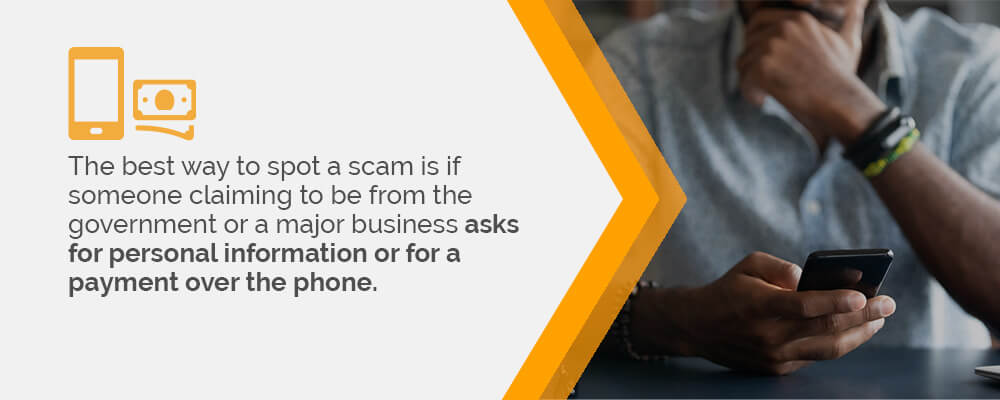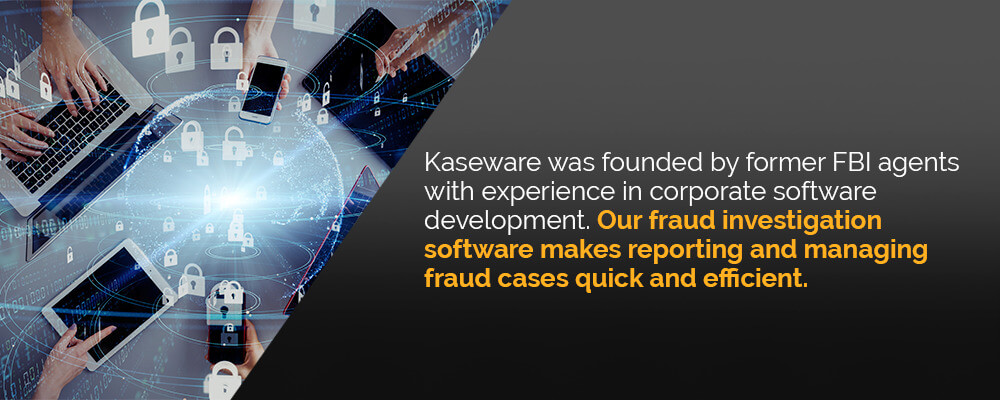Pandemic-Related Fraud and How to Catch It

Pandemic-Related Fraud and How to Catch It
The COVID-19 pandemic has forced many people to adapt to a new way of living. These changes included social distancing, public masking, business closures and stimulus checks to help people struggling to make ends meet.
These new circumstances have also created a new avenue for scammers to trick people out of their money. Whether by selling fake coronavirus testing kits and vaccination cards or posing as a stimulus check distributer asking for financial information, people have to be warier than ever of potential threats. Knowing how to recognize these scams is critical in keeping yourself and others safe.
The Rise in COVID-19 Fraud
According to the U.S. Department of Justice, several types of fraud have occurred throughout the pandemic. Recognizing them when they appear is crucial in avoiding them and protecting your money and information. Some popular types include:
- Stimulus check fraud: The introduction of stimulus checks led to scammers calling potential victims and asking for their information to give them financial aid. Government officials will not ask for sensitive information over the phone. If you receive one of these calls, it’s a scam.
- Healthcare fraud: With active cases staying stagnant, people are anxious to provide proper healthcare for themselves and their loved ones. Scammers take advantage of this by calling and posing as healthcare dealers, offering seemingly beneficial deals to steal personal information.
- Supply fraud: Some scammers will call you claiming to sell at-home COVID-19 tests or supplies. These supplies are either entirely fake or unauthorized and should not be purchased.
- Vaccination card fraud: In some cases, scammers will contact you and offer to sell you a COVID-19 vaccination card. Others will offer to buy your card from you. Others will use information from your card to impersonate you. Using a false vaccination record is a crime, as is using someone else’s. Don’t share your personal information with strangers, especially over the phone, and don’t post any pictures of your vaccination card if you have one.
- Contact tracer fraud: Officials use contact tracing to track those who may have come into contact with someone infected with COVID-19. This allows them to track the spread of the virus. Legitimate contact tracers will not ask for your personal information or payment over phone, so if you receive a call claiming to be from a contact tracer, don’t give out your personal information.
The best way to spot a scam is if someone claiming to be from the government or a major business asks for personal information or for a payment over the phone.
Who Is Responsible for COVID-19 Scams
There are three main groups of COVID-19 scammers:
- Hustlers: These are individuals who usually fraudulently file for benefits they haven’t earned. They can also recruit friends and family to their scams. These scammers are usually found out if and when local law enforcement arrests them for a different crime.
- Gangs: Street gangs and organized crime groups will usually focus on more systematic types of fraud. They will often steal information, through interpersonal connections or by buying it off of the dark web, and use it to commit benefit fraud.
- Hackers: Professional hackers will attack the target’s systems directly, making it more difficult for these systems to detect fraud, and steal any personal information saved to their databases.
Notice that these groups all tend to target the system instead of individuals. Even if they try to file for benefits from government groups doesn’t mean they won’t attempt to swindle the individual, so it’s important to be aware.
It’s also important to know who’s most at risk of being scammed. Two easy targets for COVID-19 are the elderly and those anxious about the sudden onset of new illnesses and treatments. The elderly are at a higher risk of fraud, but people who are nervous about the disease or the vaccine are prime targets for fake tests and healthcare deals and vaccine card fraud.
Challenges in COVID-19 Fraud Prevention
Prevention methods are still struggling to catch up with the sudden onslaught of COVID-19 related fraud. Scammers take advantage of scared people and coax information or money from them. Since many of these scams take place over the phone, it can make them harder to track.
Many systems are overworked and underprepared to handle these fraud cases, making them more difficult to track and solve. Many small businesses, for example, don’t use case management software in their operations, leaving them more vulnerable to fraud.
Why Prevention Is Key
Many government agencies are swamped with work nowadays. For example, prior to the pandemic, unemployment agencies would only receive some hundred thousand claims per week and could process them within two to three weeks. With the onset of the pandemic and closure mandates, the number of unemployment claims has skyrocketed.
With government agencies so backlogged, they have to prioritize those who need the most help. This means that they’ll have very little time to help fraud victims. By the time they’re able to look at a fraud victim’s case, the scammer may already be out of reach. Some government agencies don’t have the resources to track scammers, meaning they can’t help you no matter how much time they have.
Even if your local agency can help you recover your money or information, doing so will take a considerable amount of time. Preventing fraud at the start saves you time and a considerable amount of emotional distress. The Federal Trade Commission has advice for preventing fraud before it happens.
How Kaseware Helps in the Fight Against COVID-19 Fraud
Some software exists to prevent COVID-19 fraud. Agencies can use pre-existing fraud software against newer fraud forms, such as COVID-19 fraud.
Kaseware was founded by former FBI agents with experience in corporate software development. Our fraud investigation software makes reporting and managing fraud cases quick and efficient. We combine all necessary software to a single platform. It also helps to prevent fraud before it happens, utilizing technology such as intuitive dashboards, link analysis charts and data centralization software.

Stop COVID-19 Fraud with Kaseware
The onset of the pandemic has severely impacted the modern world. This upheaval includes the onset of COVID-19 fraud, whether healthcare scams, information stolen off of vaccination cards, fake testing kits or more. Whether these scams affect individuals or businesses, they can strike hard and vanish almost immediately. With Kaseware, there is hope.
Kaseware is a premier protective software service with a complete set of tools to document each step of fraud investigation. With our fraud software, you’ll have everything you need to open and organize your fraud case, all with a single software package. Contact us and request a free, personalized demo today.








